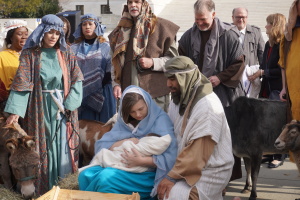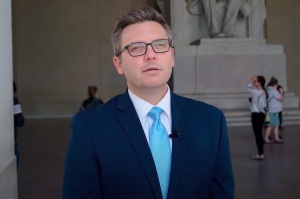Iran High Court Urged to Reverse Death Sentence for Christian
A human rights group has called on the Supreme Court of Iran to immediately reverse the death sentence of a Christian pastor.
The International Campaign for Human Rights in Iran made the appeal in a statement Tuesday, in support of Youcef Nadarkhani, 32, who was charged with apostasy. His lawyer also filed an objection to the sentence with the high court on Sunday.
"To execute someone based on the religion they choose to practice or not practice is the ultimate form of religious discrimination and disregard for the freedom of conscience and belief," said Aaron Rhodes, a spokesperson for the Campaign.
Rhodes argued that there are no articles in Iran's Islamic Penal Code that refer to apostasy as a crime.
"It is the low point of any judicial system to sentence a person to death outside of its own legal framework," he stated.
In September 2008, the Iranian Parliament approved a revision to the penal code that would make apostasy, or conversion from Islam, punishable by death. In June 2009, the Legal and Judicial Committee of the parliament recommended removing the revision. No further information has been available about a finalized penal code bill.
Nadarkhani became a Christian at 19 years of age. He is a member of the Church of Iran ministry and pastor of an approximately 400-person congregation in the northern city of Rasht.
He was arrested in October 2009 after he objected to the practice of forcing Christian school students – including his own children – to read the Quran.
On September 22, the 11th Circuit Criminal Court of Appeals for the Gilan Province upheld the death sentence and conviction of Nadarkhani for apostasy.
During the trial, the Christian pastor, who was born to Muslim parents, said he was pressured by his interrogators to say that he left Islam for Christianity. But he insisted, "I am not an apostate ... prior to 19 year old I did not accept any religion," as reported by ICHRI.
According to the campaign, the judge rested his opinion on texts by Iranian religious scholars and also cited a provision in the penal code that allows judges to draw upon their personal knowledge when adjudicating cases.
"More and more, the Iranian judiciary is departing from any recognized form of due process, issuing arbitrary judgments based on vague, open-ended laws," said Rhodes. "Laws and evidence are increasingly irrelevant and unrelated to judicial outcomes in Iran."
Several different dates of his execution were announced since the trial. Most recently, rumors circulated that he was scheduled to be executed last Friday. Some human rights groups believe it's being delayed to put more pressure on Nadarkhani to leave Christianity.
The execution has not been scheduled and neither has a hearing for the appeal with the Supreme Court, according to Present Truth Ministries, which assists the persecuted church.
Both Present Truth and ICHRI are also drawing attention to another Christian pastor who is facing a possible indictment for apostasy. If convicted, he will also be sentenced to death.
Behrouz Sadegh-Khanjani, 35, was arrested in June and held in solitary confinement and moved to a prison. His brother, Firouz Sadegh-Khanjani, told ICHRI that he has received no word from him.
"This is part of a greater trend of persecution against Christians," Firouz, member of Church of Iran's Executive Council, lamented.
Notably, Firouz pointed out that his brother was born to Christian parents and was never a Muslim.
"Technically speaking, the court should dismiss this charge," said Behrouz's lawyer, Mahmoud Taravatrooy, "but the judge has to review the accusations first."
Taravatrooy also noted that the Christian pastor is being held illegally. Sadegh-Khanjani's detention order expired on October 18.
Islam is the official state religion in Iran. The country's pre-Islamic religious groups – Zoroastrians, Christians, and Jews – are recognized as "protected" religious minorities in the constitution. But according to the U.S. State Department's latest International Religious Freedom Report, government respect for religious freedom in the country has continued to deteriorate.
Among the 67 million people in Iran, 300,000 are Christians.




























